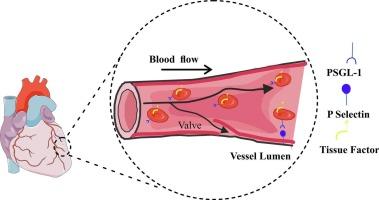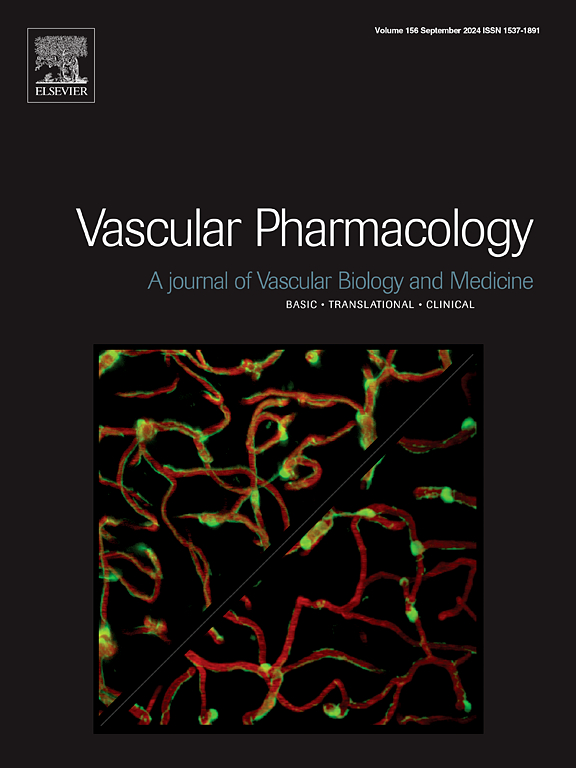Examining the controversies in venous thromboembolism prophylaxis for vascular surgery patients: A critical review
IF 3.5
3区 医学
Q2 PHARMACOLOGY & PHARMACY
引用次数: 0
Abstract
Background
Venous thromboembolism (VTE) is a significant concern in vascular surgery due to its potentially severe consequences. Effective prophylactic measures are essential to minimize the risks associated with VTE. However, considerable controversy remains regarding the optimal strategies for VTE prevention in patients undergoing vascular procedures.
Methods
This review critically analyzes key clinical research, guidelines, and expert opinions to explore the advantages and limitations of various VTE prophylaxis approaches. The pharmacological and mechanical methods are explored, with a focus on balancing the risk of VTE against the potential for bleeding complications, particularly in high-risk patients.
Results
The review addresses controversial issues such as the choice of anticoagulants, dosage, timing, and duration of prophylaxis. The lack of consensus in existing guidelines and the variability in clinical practice regarding VTE prevention in vascular surgery patients is highlighted. The role of patient-specific risk factors, including the use of intraoperative anticoagulation and bleeding risks, is also examined.
Conclusion
This review provides a comprehensive evaluation of VTE prophylaxis strategies in vascular surgery, emphasizing the need for individualized, evidence-based approaches. Clarifying these controversies is crucial for optimizing patient outcomes and minimizing both thrombotic and hemorrhagic complications.

探讨血管手术患者静脉血栓栓塞预防的争议:重要综述。
背景:静脉血栓栓塞症(VTE)因其潜在的严重后果而备受血管外科关注。有效的预防措施是将 VTE 相关风险降至最低的关键。然而,关于血管手术患者预防 VTE 的最佳策略仍存在相当大的争议:本综述对主要临床研究、指南和专家意见进行了批判性分析,探讨了各种 VTE 预防方法的优势和局限性。方法:这篇综述批判性地分析了关键的临床研究、指南和专家意见,探讨了各种 VTE 预防方法的优势和局限性,探讨了药物和机械方法,重点是平衡 VTE 风险和潜在的出血并发症,尤其是在高危患者中:结果:综述探讨了一些有争议的问题,如抗凝剂的选择、剂量、时间和预防持续时间。结果:综述探讨了抗凝药物的选择、剂量、时间和预防持续时间等有争议的问题,强调了现有指南在预防血管外科患者 VTE 方面缺乏共识以及临床实践中的差异性。此外,还探讨了患者特异性风险因素的作用,包括术中使用抗凝药物和出血风险:本综述对血管外科的 VTE 预防策略进行了全面评估,强调了个体化、循证方法的必要性。澄清这些争议对于优化患者预后、减少血栓和出血并发症至关重要。
本文章由计算机程序翻译,如有差异,请以英文原文为准。
求助全文
约1分钟内获得全文
求助全文
来源期刊

Vascular pharmacology
医学-药学
CiteScore
6.60
自引率
2.50%
发文量
153
审稿时长
31 days
期刊介绍:
Vascular Pharmacology publishes papers, which contains results of all aspects of biology and pharmacology of the vascular system.
Papers are encouraged in basic, translational and clinical aspects of Vascular Biology and Pharmacology, utilizing approaches ranging from molecular biology to integrative physiology. All papers are in English.
The Journal publishes review articles which include vascular aspects of thrombosis, inflammation, cell signalling, atherosclerosis, and lipid metabolism.
 求助内容:
求助内容: 应助结果提醒方式:
应助结果提醒方式:


